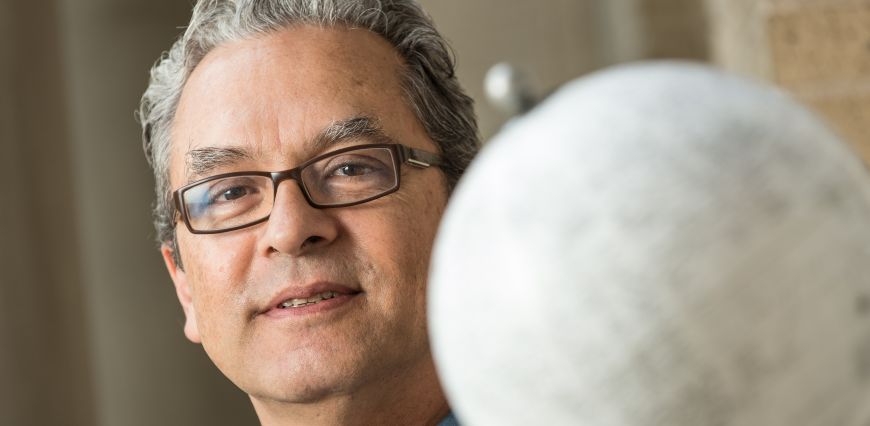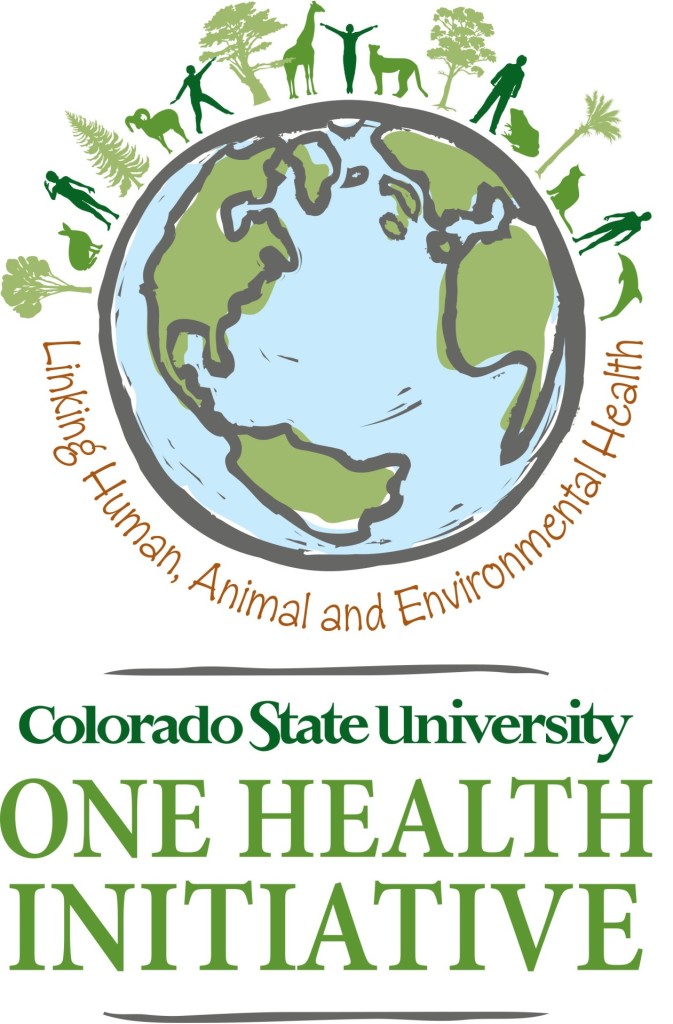
Bruno Sobral is a champion of team science – the interdisciplinary, collaborative approach that most often attracts major funding and increasingly produces the most significant breakthroughs in a world of complex challenges.
No wonder Sobral is excited by the One Health movement. It relies on teams to tackle interconnected problems in health, and it recognizes that commonalities, more than distinctions, are likely routes to solutions for humans, animals and the environment.
“One Health is built on a concept thousands of years old, that health is a dynamic property of a system rather than its parts. It’s an ancient idea that has resurfaced in modern times,” said Sobral, an engineer, geneticist and expert in computational biology and bioinformatics.
“The concept is exciting because it recognizes that relationships are more important than anything else in healthy systems,” he said. “Human systems, agro-environmental systems, animal systems, socio-technical systems – they’re all related in the context of health.”
This month, Sobral began work as the first director of the Colorado State University One Health Initiative and as a professor in the Department of Microbiology, Immunology, and Pathology. Hired by the Office of the Vice President for Research, he is charged with cultivating CSU efforts that are poised to deliver innovative interventions for healthy systems.
The One Health Initiative launched two years ago during the International Colloquium on Global One Health, a series of talks hosted by the university’s Office of International Programs. The initiative gained steam earlier this year, when the Office of the Vice President for Research awarded a total of $360,000 in seed grants to jump start six promising One Health research projects across campus.
The CSU One Health Initiative began during the university’s International Colloquium on Global One Health in 2013. Activities so far – and plans ahead – include:
- The Office of the Vice President for Research, working with CSU’s eight colleges, awarded six seed grants, totaling $360,000, to research projects representing One Health.
- A One Health Dinner Lecture Series has featured guest speakers from the Gates Foundation, Department of Defense and campus faculty.
- A One Health workshop is planned 4-6 p.m. Oct. 6 in the Cherokee Ballroom, Lory Student Center. The event is meant to generate interest in the CSU One Health Initiative and its possibilities; it is free and open to the campus community.
“Dr. Sobral will work to further develop our growing campuswide initiative into a world-class institute that leverages the university’s interdisciplinary expertise to help solve some the planet’s pressing challenges,” Vice President for Research Alan Rudolph said. “Colorado State is well-positioned to provide high-impact solutions in the global One Health community with our established expertise in critical fields.”
These include: infectious disease and its emergence; environmental toxicology; food safety and security; sustainable agriculture and enterprise; biodiversity and ecosystem function; engineering; public health; and behavioral sciences. Adding to this heft are key state and federal agencies with local offices and established CSU partnerships, including Colorado Parks and Wildlife, the Centers for Disease Control and Prevention, and the U.S. Department of Agriculture, Animal and Plant Health Inspection Service.
The modern One Health movement has gained significant visibility, as health experts around the world increasingly recognize the complexity and interconnectedness of today’s climactic, ecological, food security, population and public-health challenges.
Indeed, the American Medical Association and American Veterinary Medical Association have prioritized One Health work, particularly as a way to thwart effects of cross-species disease transmission, or zoonoses, with inherent ties to the environment.
 That’s why interdisciplinary scientific teams must plumb connections among human, animal and environmental health, seeking insights and successful interventions at these junctures, Sobral said.
That’s why interdisciplinary scientific teams must plumb connections among human, animal and environmental health, seeking insights and successful interventions at these junctures, Sobral said.
“I’m really interested in interventions and designing them for use in the real world,” he said. “If we really want to solve problems, we have to design new interventions in a human-centered manner, with beneficiaries at the table from the start.”
Sobral’s career experience exemplifies One Health. He recently served as chief science officer for Alkol Biotech, a London-based feedstock research company that develops agricultural products for biofuels. He was an assistant vice president and head of Biosystem Informatics and Human Microbial Ecology at the Nestlé Institute of Health Sciences in Lausanne, Switzerland.
Sobral also was the founding executive and scientific director for the Virginia Bioinformatics Institute at Virginia Tech, where he was a professor of plant pathology, physiology and weed science. His research at the institute focused on symbiosis from a biological perspective; he has worked in infectious disease, computational biology, bioinformatics and cyberinfrastructure.
During his first several months at CSU, Sobral will meet with stakeholders with the goals of jointly creating the One Health Institute’s purpose, establishing its values, investigating strategic partnerships, alliances, and collaborations; developing appropriate advisory boards; coordinating activities across campus and in the community; representing the university through networking and professional collaboration with external constituents, industry representatives, schools and organizations; and developing resources for programmatic growth and sustainability.
“I see my first task as learning,” he said.
The One Health Steering Committee provided oversight for the hiring of the One Health director, dinner lecture series, administration of seed grants and investigation of educational opportunities in One Health. The committee will be reformatted to ensure broader representation from colleges and schools across campus. Those serving on the original committee are:
Dr. Alan Rudolph, Vice President for Research
Dr. Mark Stetter, Dean, College of Veterinary Medicine and Biomedical Sciences
Dr. Debra Horensky, Associate Director, Infectious Disease Research Center
Dr. Nancy Irlbeck, Associate Dean for Academic Affairs, College of Agricultural Sciences
Dr. Barb Powers, Director, Veterinary Diagnostic Laboratories
Dr. Sue VandeWoude, Associate Dean for Research, College of Veterinary Medicine and Biomedical Sciences
Dr. Diana Wall, University Distinguished Professor, Professor of Soil Ecology and Founding Director, School of Global Environmental Sustainability